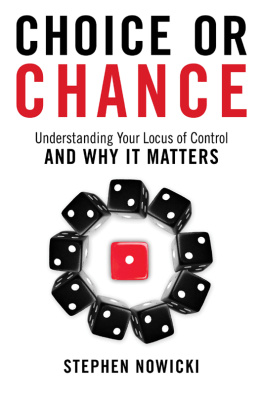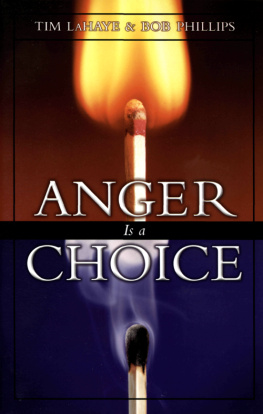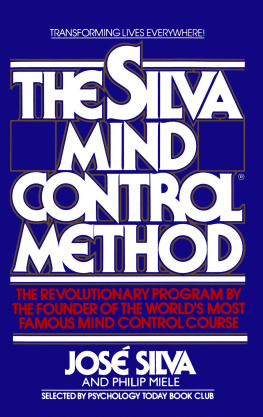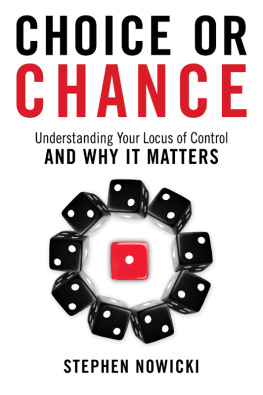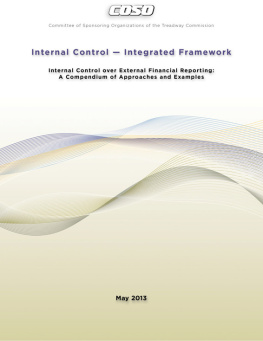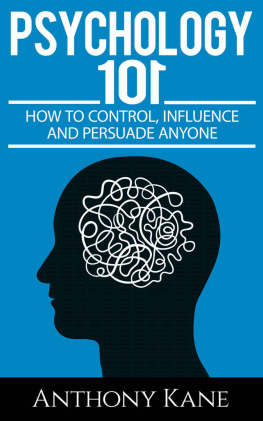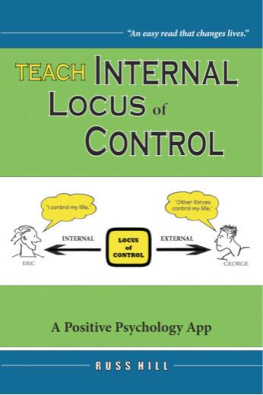
When you have been involved in something as important as the study of Locus of Control for as long as I have, you understand how vital your relationships with colleagues, students, family members, and friends are.
Of course, we all owe so much to Julian Rotter, a true pioneer in the study of human behavior. His unique insights brought the concept of social learning in general and Locus of Control in particular to the forefront of psychology.
Marshall Duke has been my colleague, confidant, confessor, and best friend on this journey. I cannot imagine the trip without him by my side.
Bonnie Strickland introduced me to Julian Rotter and his work and was responsible for my learning so many things about what it means to be not just a professor but a professor who values teaching and students above all else. The gifts of her friendship and guidance have helped keep me on the right academic path through the years.
Academic colleagues like Jean Golding, Don Gordon, Klaus Scheewind, Albert Osborn, John Carton, and Tom Johnson, have joined me in Locus of Control research at various times and given me the energy and insights I needed to continue my work.
And then there are my students. The thought of them fills me with emotion as I consider how much they have contributed to my enjoyment of the academic life. Undergraduates and graduates alike have committed themselves to the study of Locus of Control with me and by doing that have contributed in many nuanced ways to my own education, both scientific and personal. There are too many honors theses, convention papers, publications, master's theses, and dissertations to list here, but I have mentioned many of them in the text.
Before I had my academic family, there was my biological one. My mother and father were my initial teachers of the benefits and liabilities of either an Internal or External way of perceiving what happened to me.
Finally, there is my own family, the one I chose to have and grow old with: my wife, Kaaren, who always provides me with what I need and keeps me in line; my son, Andy, who has helped me to see life in so many different ways; my daughter-in-law, Jenny, whose humor and caring are always appreciated; and my grandchildren, Hannah Ruth and Soren, who every day give me reason to be optimistic about life. Thank you all for making this book possible and my life so satisfying and rich.
But of course the book never would have been seen the light of day if it were not for the unflagging encouragement and help of Bridget Matzie Wagner, my literary agent, in developing the proposal; Jackie May Parkinson, who made my words sound so much better; and the people of Prometheus Books, Steven L. Mitchell and Jade Zora Scibilia, who actually said yes to making it all happen. Thank you.

You only live once, but if you do it right, once is enough.
Mae West
You've met people who just seem to get life right. They are a joy to be with and are utterly dependable. If you need someone to write an article for the community paper, pick the children up from school, get a report done at the office, or call you back at a specific time, they're the ones you choose. You can relax around them because they know what to say and how to act. You like and respect them because they follow through on what they say they are going to do, and if you have a problem, they are the ones who will come up with solutions. They approach life confidently, as though they have something to do with how it is going to turn out.
What they excel at is excelling. They make excellent teachers, bosses, athletes, friends, coworkers, and parents. They seem to squeeze every bit of potential out of their ability, be it in school, in the workplace or in social situations. We look with wonder at how exquisitely they manage to balance life's challenges. How do they do it? Do they know something the rest of us don't?
Were such people merely born ready to do the right thing? Or have they gone through a special learning process open to only a select few? Maybe they take supplements of some sortvitamins made from exotic animal parts. Maybe they have gone through some secret neurological enhancement operation that allows them to use that unused 90 percent of the human brain we hear about. What is clear is that they believe they have control over their lives; that, for them, life presents a continual succession of choices that will determine failure or success; and that, more often than not, they make the correct selections.
They are the Internals.
And then there is another type of person, whom you also recognize. They are the ones who have trouble getting life right. They start many things but often fail to follow through. When they fail, they give a million ready-made excuses for why their failures weren't their fault. They vow to do better the next time, but when the next time comes, they don't. Rather than initiating things, they seem more comfortable reacting to whatever pressures are operating on them. You wish you could depend on them, but too often they are not where they said they would be or doing what they are supposed to be doing. Others see their potential, but they don't. Their relationships are shaky and unsatisfying, and their lives are largely unfulfilled and unhappy. When something bad happens to them, they react with behavior paralysis. They are convinced that fate has handed them a bad deal or that they have been unlucky.
They are the Externals.
DEFINING LOCUS OF CONTROL
Before picking up this book, you may not have heard of Locus of Control, but it is an extraordinarily important concept in modern psychological circles. In fact, over the past fifty years, more studies have been published on this concept than most any other in the history of personality psychology. A search of the database PsycINFO using the keyword Locus of Control found 17,812 articles published on this topic as of summer 2015, with 6,600 appearing after 1996 and 1,426 between 2010 and 2015. Locus of Control is a resilient concept that has shown incredible sustainability within the scientific community.
LOC has its origins in the influential social learning theory of Julian Rotter, one of the true giants of American psychology. Quite simply, LOC reflects how we have learned to perceive what happens to us. The more we have learned to expect connections between our actions and outcomes, the more Internal we are; the less we expect such links, the more External we are. If we are more Internal, we tend to view ourselves as able to influence the course of our lives; if we are more External, we tend to view our lives as governed by forces beyond our control.
Though most people fall somewhere between these two extremes, an Internal or External orientation has far-reaching effects. For example:
- The more External mothers are, the more likely their children will have behavioral problems in school, as well as greater feelings of depression and anxiety.
- Externals live somewhere between 2.5 and 7 years less than Internals.
- The more External CEOs are, the less financial success and the more bankruptcies their companies are likely to have when economic times are difficult.
- Internality is one of the best predictors of managerial success across an amazing variety of organizations.
- Externality at age ten predicts higher blood pressure and/or greater obesity by age thirty-five.
- Internals facing Parkinson's, diabetes, kidney disease, heart disease, joint injury, or the prospect of major surgery cope better and have better treatment outcomes than Externals in the same circumstances.
Next page
